#historical fiction mystery fantasy author
Explore tagged Tumblr posts
Text
And now it's that time of year when I start asking for book recommendations! I love fantasy, with or without spicy romance elements - if there's in-depth worldbuilding, I probably will love it. Upon request, I can show off the current TBR pile that lives beside my bed and is almost as tall as my nightstand. ;)
Current reading plans for 2025 include re-reading the Stormlight Archives series by Brandon Sanderson (I've got Wind and Truth waiting for me at Indigo for pickup!) and continuing through Jennifer L. Armentrout's Blood and Ash series. I've also started Tress of the Emerald Sea (also by Brando Sando) and have Dune and Fourth Wing in the TBR pile. And when the budget allows, I'll be grabbing Heavenly Tyrant by Xiran Jay Zhao (Iron Widow #2. If you haven't read Iron Widow, it comes highly recommended by yours truly! @superiorjello gifted it to me and I loved it. =D)!
(We are not going to discuss all the books in my Kobo app because BookBub and Humble Bundle keep sending me deals for cheap ebooks...)
(Some of my favourite series of old (also what is the plural of series?) include Lord of the Rings, Wheel of Time, and Malazan Book of the Fallen! I also enjoyed A Song of Ice and Fire, although I'm pretty sure that will never be finished before GRRM bites it. Also highly enjoyed Shadow and Bone (need to get the next book) and just read Caraval! Also need to pick the Dark Tower series back up... read The Gunslinger like 15 years ago and liked it, but then fell off the wagon and need to get back on it!)
#kel irl#bookworms of tumblr#book recommendations#gimme your recs!#fantasy books#I also asked Tim Downie for book recs too#and I have 'The Fetch' by Robert Holdstock sitting in my TBR thanks to him!#not big into historical fiction#or 'real-world' fiction#there's a couple authors who've done murder mysteries who I really liked#but for the most part I'm in here for escapism and worldbuilding
4 notes
·
View notes
Text
Author Promo
For those who are interested I have a professional author site on wordpress and tumblr.
My wordpress is:
http://veronicaleighauthor.wordpress.com
And my tumblr is:
http://www.tumblr.com/veronicaleighauthor
I’d appreciate it if you’d follow me on either, and/or share this. Thanks!
#shameless self promo#historical fiction#crime fiction#mystery fiction#indie author#fantasy fiction#horror fiction#speculative fiction
16 notes
·
View notes
Text
Some people think foxes are similar to ghosts because we go around collecting qi, or life force, but nothing could be further than the truth. We are living creatures, just like you, only usually better looking . . . Manchuria, 1908. A young woman is found frozen in the snow. Her death is clouded by rumors of foxes involved, which are believed to lure people by transforming themselves into beautiful women and men. Bao, a detective with a reputation for sniffing out the truth, is hired to uncover the dead woman’s identity. Since childhood, Bao has been intrigued by the fox gods, yet they’ve remained tantalizingly out of reach. Until, perhaps, now. Meanwhile, a family that owns a famous Chinese medicine shop can cure ailments, but not the curse that afflicts them―their eldest sons die before their twenty-fourth birthdays. Now the only grandson of the family is twenty-three. When a mysterious woman enters their household, their luck seems to change. Or does it? Is their new servant a simple young woman from the north or a fox spirit bent on her own revenge?

6 notes
·
View notes
Text
Happy #StPatricksDay! Wishing you good luck and fantastic Irish reads!
#Books#Caroline O&039;Donoghue#Catherine Doyle#Catherine Ryan Howard#Debuts#Diversity#Diversity in Books#Donal Ryan#Fantasy Books#Fantasy Series#Historical Fiction#Ireland#Irish#Irish Authors#Irish Books#Irish History#Irish Literature#Irish Mysteries#Irish Women#Irish Writers#Irish YA#Irish YA Books#Jane Casey#Literary Fiction#Locked Room Thrillers#Mystery & Thriller#Mystery Series#Novels in Verse#Romance#Sam Blake
0 notes
Text
Do you ever find yourself stuck?
Do you ever find yourself stuck in a genre/series/author? Do you only read books from a specific genre/series/author? If so, why? Are you happy reading books from that genre/series/author? If not, what have you found that works to get yourself unstuck? I’ve never found myself in this particular situation. Thanks to my ADHD, I don’t tend to linger on one genre or author for very long. Don’t get…
View On WordPress
#Author#crime drama#e-book#fantasy#genre#graphic novels#hardcover#historical fiction#horror#in a rut#mystery#paperback#poetry#romance#science fiction#series#specific#stuck#suspense#thriller
1 note
·
View note
Text
Favourite Reads of the Year
I will not be ranking these, because that would hurt my heart. Buckle up folks, there are a lot of amazing books out there
The Murderbot Diaries by Martha Wells
I know, I KNOW, I'm late to the party but omg this whole series is just as good as people say!!! I know I said I wouldn't be ranking, but if I was these would be fighting for the top spot. I have already relistened to all the audiobooks. I anticipate rereading them literally every year from now on. I would die for Murderbot, which it would think is a stupid thing for a human to do when there is a SecUnit right there. [adult, scifi]
Emily Wilde's Map of the Otherlands by Heather Fawcett
Sequel to last year's fav Emily Wilde's Encyclopaedia of Faeries, this follows a bullheaded academic trying find the magical door that will let her faerie boyfriend back into his faerie kingdom. Chaos ensues in the Alps. It's fabulous, and the author's approach to using folklore is very similar to my own writing, which I love and also get imposter syndrome about. 10/10 recommend [adult, historical fantasy]
Model Home by Solomon Rivers
Would you like to be repeatedly punched in the gut? Look no further than this story of racism and child abuse in a Texas McMansion, with gorgeous prose and a genderqueer protagonist and the laundry list of content warnings you can expect with the genre. It hurt so good. [adult, contemporary gothic horror]
You Should Be So Lucky by Cat Sebastian
This love affair between a baseball play and a sports reporter was recced to me by the lovely @colubrina and boy was it worth the two-day binge it inspired! Romance can be very hit-or-miss for me, but this knocked it out of the park (please enjoy my pun). I didn't even have to know anything about baseball to love it! [adult, historical (1960s) romance]
The Locked Tomb Series by Tamsyn Muir
Another tumblr fav, FOR A REASON. Gideon is hilarious. Harrow is an absolute mess. Nona is BABY, my beloved. (Camilla and Palamedes have my whole entire heart). Also, the audiobook narrator is fantastic. In the words of the author, the buns are also fried chicken. [adult, sci fantasy]
Master and Commander by Patrick O'Brian
This one is @elodieunderglass's fault. Historical buffoonery on boats. The main characters are ridiculous. The sailing jargon is incomprehensible. It's great. [adult, historical fiction]
All You Can Ever Know by Nicole Chung
This is a gorgeous memoir of an interracial adoptee trying to make contact with her birth family while pregnant with her own child. It grapples thoughtfully with reconnecting to a lost culture, the complexities of family history, and the social and legal barriers adoptees face to learning about themselves. [adult, memoir]
Death in the Spires by KJ Charles
I devour everything Charles writes, so I was EXCITED for this mystery. She made it very clear on social media "It's not a kissing book!!" (it's kinda still a kissing book). She wrote a stonking book, as usual, with an underdog protagonist revisiting the murder that happened during his toxic time at Oxford university. [adult, historical mystery]
Martyr! by Kaveh Akbar
My favourite literary fiction read of the year, this meditation on Iranian diaspora identity is written by a poet and you can tell. I would suck the prose up through a straw if I could. The protagonist is an addict and also quite suicidal. It was fun :) [adult, literary fiction]
She Who Became the Sun by Shelly Parker-Chan
and the sequel, He Who Drowned the World. I don't even know how to sell this, all I want to do is flail incoherently about how amazing it is. IT'S AMAZING. JUST READ IT. (wait I know: this satisfied the part of me that was obsessed with Mulan as a kid) [adult, historical fantasy]
A Little Trickery by Roseanna Pike
The voicey-est book I've ever read. I screenshot like every other page. It follows an orphaned girl trying to survive in Tudor England through various means, such as faking a miracle in the church where her gay best friend is priest. [adult, historical fiction]
At the End of the River Styx by Michelle Kulwiki
My friend wrote a book! It made me cry!!! They were delighted with this!!! Please give this to any teenager in your life who needs to see thoughtful representation of grief and depression and boys in love. [YA, contemporary fantasy]
#there's a little bit of everything in here#sorry to the thriller fans#I am too stressed to read many of those at the moment#bea reads#book recommendations
300 notes
·
View notes
Text
You Don't Need an Agent! Publishers That Accept Unsolicited Submissions
I see a few people sayin that you definitely need an agent to get published traditionally. Guess what? That's not remotely true. While an agent can be a very useful tool in finding and negotiating with publishers, going without is not as large of a hurdle as people might make it out to be!
Below is a list of some of the traditional publishers that offer reading periods for agent-less manuscripts. There might be more! Try looking for yourself - I promise it's not that scary!
Albert Whitman & Company: for picture books, middle-grade, and young adult fiction (edit: this source has been reported to be pretty predatory)
Hydra (Part of Random House): for mainly LitRPG
Kensington Publishing: for a range of fiction and nonfiction
NCM Publishing: for all genres of fiction (YA included) and nonfiction
Pants of Fire Press: for middle-grade, YA, and adult fiction
Tin House Books: very limited submission period, but a good avenue for fiction, literary fiction, and poetry written by underrepresented communities
Quirk Fiction: offers odd-genre rep for represented and unagented authors. Unsolicited submissions inbox is closed at the moment but this is the page that'll update when it's open, and they produced some pretty big books so I'd keep an eye on this
Persea Books: for lit fiction, creative nonfiction, YA novels, and books focusing on contemporary issues
Baen: considered one of the best known publishers of sci-fi and fantasy. They don't need a history of publication.
Chicago Review Press: only accepting nonfiction at the moment, but maybe someone here writes nonfiction
Acre: for poetry, fiction and nonfiction. Special interest in underrepresented authors. Submission period just passed but for next year!
Coffeehouse Press: for lit fiction, nonfiction, poetry and translation. Reading period closed at time of posting, but keep an eye out
Ig: for queries on literary fiction and political/cultural nonfiction
Schaffner Press: for lit fiction, historical/crime fiction, or short fiction collections (cool)
Feminist Press: for international lit, hybrid memoirs, sci-fi and fantasy fiction especially from BIPOC, queer and trans voices
Evernight Publishing: for erotica. Royalties seem good and their response time is solid
Felony & Mayhem: for literary mystery fiction. Not currently looking for new work, but check back later
This is all what I could find in an hour. And it's not even everything, because I sifted out the expired links, the repeat genres (there are a lot of options for YA and children's authors), and I didn't even include a majority of smaller indie pubs where you can really do that weird shit.
A lot of them want you to query, but that's easy stuff once you figure it out. Lots of guides, and some even say how they want you to do it for them.
Not submitting to a Big 5 Trad Pub House does not make you any less of a writer. If you choose to work with any publishing house it can take a fair bit of weight off your shoulders in terms of design and distribution. You don't have to do it - I'm not - but if that's the way you want to go it's very, very, very possible.
Have a weirder manuscript that you don't think fits? Here's a list of 50 Indie Publishers looking for more experimental works to showcase and sell!
If Random House won't take your work - guess what? Maybe you're too cool for Random House.
#writing community#writeblr#on writing#writers on tumblr#authors of tumblr#queer writers#poc writer#trans writers#ya author#writing tips#writing resources#writing inspiration#writers supporting writers
614 notes
·
View notes
Note
can you do a blog about the main types of book genres there are if you haven't already? and how to know what you're writing?
Types of Book Genres
Mystery. Follows a crime (like a murder or a disappearance) from the moment it is committed to the moment it is solved. Mystery novels are often called “whodunnits” because they turn the reader into a detective trying to figure out the who, what, when, and how of a particular crime. Most mysteries feature a detective or private eye solving a case as the central character.
Thriller. According to the New York Public Library, thrillers gradually build anxiety and suspense. Examples of thrillers include “Gone Girl” by Gillian Flynn, “All Her Little Secrets” by Wanda M. Morris and “The Silent Patient” by Alex Michaelides. ⚜ Psychological Thriller
Horror. “Carrie” by Stephen King, “The Haunting of Hill House” by Shirley Jackson and Edgar Allen Poe’s work are all under the umbrella of horror. These works are intended to frighten audiences and elicit a feeling of dread, according to the CDE.
Historical Fiction. Historical fiction takes place in a historical setting, the CDE notes. Some examples of historical fiction include “The Prophets” by Robert Jones, Jr. and “The Four Winds” by Kristin Hannah.
Romance. Romance Writers of America (RWA) noted that romance refers to optimistic and emotionally satisfying stories that focus on a central love story. “The Love Hypothesis” by Ali Hazelwood and “Red, White and Royal Blue” by Casey McQuiston are both romance novels.
Western. Primarily set in the American Old West between the late 18th century and late 19th century and tell the stories of cowboys, settlers, and outlaws exploring the western frontier and taming the Wild West.
Bildungsroman. Translates to “novel of education” or “novel of formation,” chronicles a character’s journey from young innocence to worldly adulthood. This is a specific type of coming-of-age story in which the character gains knowledge and experience, even as innocence is lost.
Speculative Fiction. Refers to genres not based in reality, including work with magical, supernatural or otherwise imagined elements. Essentially, speculative fiction is the opposite of mimetic fiction. The category includes subgenres like fantasy, science-fiction, dystopian fiction and more, Witcover noted.
Science Fiction. This genre often involves science and technology of the future. Science fiction is frequently set in space or a different universe or world. It often uses some real theories of science.
Fantasy. According to the California Department of Education (CDE), fantasy "invites suspension of reality." The genre encompasses stories that wouldn't happen in real life, often set in another world or including magical elements.
Dystopian fiction. Imagines a future place in cataclysmic decline.
Action and Adventure. The tension of the protagonist’s journey in an adventure story creates a pulse-pounding, adrenaline-pumping storyline. Dramatic car chases, secret missions, and violent fight scenes often pop up in famous action stories. Great action writing draws in your audience, getting their adrenaline pumping as they turn the page.
Nonfiction (Memoir: Stories from an author’s life that offer a firsthand account of events are called memoirs. According to Reader's Digest, some highly-recommended memoirs include “I Know Why The Caged Bird Sings” by Maya Angelou and “Spare” by Prince Harry. ; Autobiography: a nonfiction (true) account of someone’s life. It is written by the subject of the autobiography; Biography: tell the story of a notable person’s life, written by someone other than the subject. Some examples are “Into the Wild” by Jon Krakauer, which tells the story of the adventurer Chris McCandless, and “The Immortal Life of Henrietta Lacks” by Rebecca Skloot.)
Food and Travel. Cookbooks, food history books, travel guides and travel memoirs all fall under this category that includes “The Omnivore's Dilemma” by Michael Pollan and “My Life in France” by Julia Child.
Humor. Strong humor writers have a way of spotting the patterns of life and bringing them to the surface at exactly the right moment.
Young Adult. YA books are intended for readers between 12 and 18 years old, according to Smithsonian Magazine. Some examples include “The Hunger Games” by Suzanne Collins and “The Hate U Give” by Angie Thomas.
Children's Fiction. Many classic examples of children’s literature are picture books, including “Where the Wild Things Are” by Maurice Sendak or “Don’t Let the Pigeon Drive the Bus” by Mo Willems. Scholastic noted most picture books are intended for children up to seven years old.
Knowing your Genre. The world of literature abounds with different genres.
Although every literary genre has its own trends and defining characteristics, the divisions between these categories aren't always clear. Whether you’re picking another book off the shelf or plotting out your new novel, learning more about genre can help you decide what comes next.
If you want to become a writer, there are a number of reasons to learn about genres, according to Paul Witcover, associate dean of the online Master of Fine Arts (MFA) in Creative Writing program at Southern New Hampshire University (SNHU).
“I feel it’s important for writers to have an understanding of genre because it will impact how their books are marketed, as well as how they are perceived by publishers,” he said. “But I also think writers can be too concerned with genre.”
Although he encourages writers to learn about the subject, Witcover noted a tendency for overly rigid ideas about the distinctions between genres. “Concepts of genre are more fluid than writers may believe,” he said. It's important to keep that fluidity in mind.
Genre is determined by need and audience expectation. Its set functions are determined by its social need.
Broadly speaking, the fiction world is divided into 2 segments: literary fiction and genre fiction.
Literary fiction typically describes the kinds of books that are assigned in high school and college English classes, that are character driven and describe some aspect of the human condition. Pulitzer Prize and National Book Award winners tend to come from the literary fiction genre.
Genre fiction has a more mainstream, populist appeal. It traditionally comprises genres such as romance, mystery, thriller, horror, fantasy, and children’s books.
Some genre writers straddle a line between genre-focused commercial fiction and the traditions of literary fiction.
Traditionally, there are 4 broader categories of genre:
Fiction: Imagined or invented literature is called fiction, Writers & Artists noted. Examples of fiction titles include “1984” by George Orwell and “Little Fires Everywhere” by Celeste Ng.
Nonfiction: According to Writers & Artists, nonfiction refers to fact-based works. Some nonfiction titles include “The Body Keeps Score” by Bessel van der Kolk and “I Am Malala” by Malala Yousafzai, and “Essentials of Classic Italian Cooking” by Marcella Hazan.
Poetry: Britannica defines poetry as “literature that evokes a concentrated imaginative awareness of experience or a specific emotional response through language chosen and arranged for its meaning, sound and rhythm.” Poetry incorporates poetic elements and encompasses the work of writers like Maya Angelou, Robert Frost, Amanda Gorman and Richard Siken.
Drama: Dramatic literature refers to texts of plays that can be read for their literary value as well as performed, according to Britannica. Dramas include stage directions and specific formatting not found in prose or verse. Some of the most studied dramas are Shakespeare’s plays, like “Hamlet” and “Romeo and Juliet.” You might be familiar with other dramas, too, like “Death of a Salesman” and “The Crucible” by Arthur Miller or August Wilson’s Century Cycle of 10 dramas depicting the Black experience in the U.S. throughout the 20th century, including “The Piano Lesson” and “Fences.”
Although most writing falls into at least one of these 4 categories, the edges are a bit blurred, and there can be overlap.
Sources: 1 2 3 4 5 6 ⚜ More: Writing Notes & References
It seems the general advice is to learn about the different genres first, and try to see which elements your story has that align with them. Perhaps start with the broader categories first, then narrow it down to the major genres, until you identify which specific subgenre your story fits. And it's fine if they overlap, as this happens with most novels. Hope this helps!
#writing reference#genre#writeblr#dark academia#writers on tumblr#spilled ink#fiction#novel#creative writing#literature#writing prompt#light academia#writing tips#writing advice#writing inspiration#writing ideas#writing resources
114 notes
·
View notes
Text
2025 Anticipated Book Releases
I have a number of anticipated book releases for 2025, but not as many as last year I think. Which is kinda good, because I can work on reading what I have on my physical tbr and backlist tbr too. I love new releases, but I need time to read other stuff too!
January:
Breath of the Dragon by Fonda Lee and Shannon Lee (Jan 7th): YA asian fantasy with dragons, featuring a martial arts tournament. I'll read anything by Fonda Lee I think, and this seems fun!
Adrift in Currents Clean and Clear (Wayward Children 10) by Seanan McGuire (Jan 7th): I think this is the last book? I remember reading somewhere that Seanan said it's only going to be 10 books? Either way, I'll cry when it's over.
Motheater by Linda H. Codega (Jan 21st) this seems to be some sort of witchy queer appalachian folklore story, and I am all here for it. I want all the rural gothic vibes please.
Carving Shadows into Gold by Brigid Kemmerer (Jan 28th) I've been waiting for the sequel to Spinning Silver into Stars for a while now, and I'm super excited to finally get this. I might need to reread book 1 in January
February:
Black Woods, Blue Sky by Eowyn Ivey (Feb 4th): I've been waiting for a new Eowyn Ivey book for years, and we're getting a beauty and the best retelling set in Alaska that is literary fiction/magical realism, I couldn't be happier
Emily Wilde's Compendium of Lost Tales (Emily Wilde 3) by Heather Fawcett (Feb 11th), one of my most anticipated releases of the year, and the final book to one of my favorite on-going series. A lot of people are excited for this one.
March:
Fable for the End of the World by Ava Reid (March 4th): I'll read everything Ava Reid writes, and this is her first queer dystopian book. The covers are beautiful, and I need to read Lady Macbeth before this comes out!
Oathbound (Legendborn 3) by Tracy Deonn (March 4th) Another one of my most anticipated releases of the year. Legendborn is just fantastic, and I would consider taking the day off of work just to start reading this
Wild Dark Shore by Charlotte McConaghy (March 4th) A mystery thriller set on an island near Antartica, with nature and climate themes like McConagly's other books. I need to read her Once there were wolves before this comes out
May:
The Sun Blessed Prince by Lindsey Byrd (May 1st), this looks like a queer fantasy and characters who have life/death powers. Seems like something I'd be interested in.
The Incandescent by Emily Tesh (May 13th) A queer dark academia book about the director of a magical school.
The Knight and the Moth by Rachel Gillig (May 20th) I wasn't a huge fan of Gillig's other book, but I'm 100% willing to give this a try. A heretic knight and a prophetess must team up to save her missing sisters. The cover is beautiful too.
June:
The Tower of the Tyrant by JT Greathouse (June 19th) This seems like the start of a new epic fantasy about a sorceress going on a quest. I'm interested in this author's other published books too.
A Far Better Thing by HG Parry (June 17th): I'll read anything Parry writes, and this a portal fantasy during the French Revolution.
The Listeners by Maggie Stiefavter (June 3rd), Maggie's first adult book, and historical fiction set in Appalachia during ww2.
Second half of 2025 or Release Date to be determined:
While the Dark Remains by Joanna Ruth Meyer
Hot Wax by ML Rio
Hemlock and Silver by T Kingfisher
A Land So Wide by Erin Craig
Katabasis by RF Kuang
That's all for now! Release dates are susceptible to change, and there will probably be more books I add over the new year. If you comments/thoughts please share them with me!
#2025 anticipated book releases#2025 books#book releases#new books#fantasy books#bookblr#booklr#my post
84 notes
·
View notes
Text
Queer Adult SFF Books Bracket: Round 1
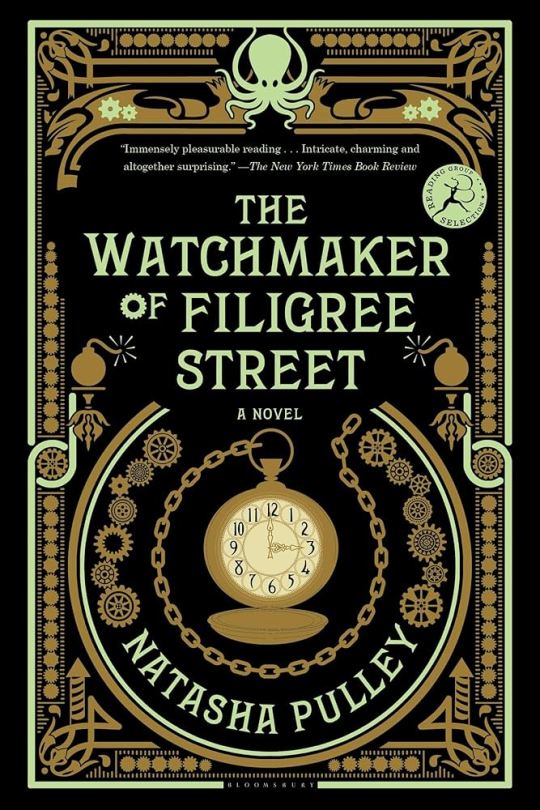

Book summaries below:
The Watchmaker of Filigree Street by Natasha Pulley
1883. Thaniel Steepleton returns home to his tiny London apartment to find a gold pocket watch on his pillow. Six months later, the mysterious timepiece saves his life, drawing him away from a blast that destroys Scotland Yard. At last, he goes in search of its maker, Keita Mori, a kind, lonely immigrant from Japan. Although Mori seems harmless, a chain of unexplainable events soon suggests he must be hiding something. When Grace Carrow, an Oxford physicist, unwittingly interferes, Thaniel is torn between opposing loyalties.
The Watchmaker of Filigree Street is a sweeping, atmospheric narrative that takes the reader on an unexpected journey through Victorian London, Japan as its civil war crumbles long-standing traditions, and beyond. Blending historical events with dazzling flights of fancy, it opens doors to a strange and magical past.
Fantasy, historical fiction, mystery, science fiction, adult
The Burning Kingdoms series (The Jasmine Throne, The Oleander Sword, The Lotus Empire) by Tasha Suri
Author of Empire of Sand and Realm of Ash Tasha Suri’s The Jasmine Throne, beginning a new trilogy set in a world inspired by the history and epics of India, in which a captive princess and a maidservant in possession of forbidden magic become unlikely allies on a dark journey to save their empire from the princess’s traitor brother.
Imprisoned by her dictator brother, Malini spends her days in isolation in the Hirana: an ancient temple that was once the source of the powerful, magical deathless waters — but is now little more than a decaying ruin.
Priya is a maidservant, one among several who make the treacherous journey to the top of the Hirana every night to clean Malini’s chambers. She is happy to be an anonymous drudge, so long as it keeps anyone from guessing the dangerous secret she hides.
But when Malini accidentally bears witness to Priya’s true nature, their destinies become irrevocably tangled. One is a vengeful princess seeking to depose her brother from his throne. The other is a priestess seeking to find her family. Together, they will change the fate of an empire.
Fantasy, epic fantasy, politics, secondary world, series, adult
#polls#queer adult sff#the watchmaker of filigree street#natasha pulley#the burning kingdoms#tasha suri#the jasmine throne#the oleander sword#the lotus empire#the lost future of pepperharrow#twofs#pulleyverse#books#booklr#lgbtqia#tumblr polls#bookblr#book#lgbt books#queer books#poll#sff#sff books#queer sff#book polls#queer lit#queer literature
61 notes
·
View notes
Text
Aziraphale has memorized Winnie the Pooh and it’s more important than you think
Basically Neil Gaiman was casually dropping hints about Good Omens 2 plot as early as 2019:
Aziraphale has memorized the Winnie the Pooh books, several Georgette Heyer novels, and Bobo’s Modern Coin Magic, though.
Georgette Heyer was an English novelist and short-story writer, in both the Regency romance (which she has virtually invented, based on extensive historical research as well as Jane Austen’s influences) and detective fiction genres. She used romantic plots and happy endings in both.
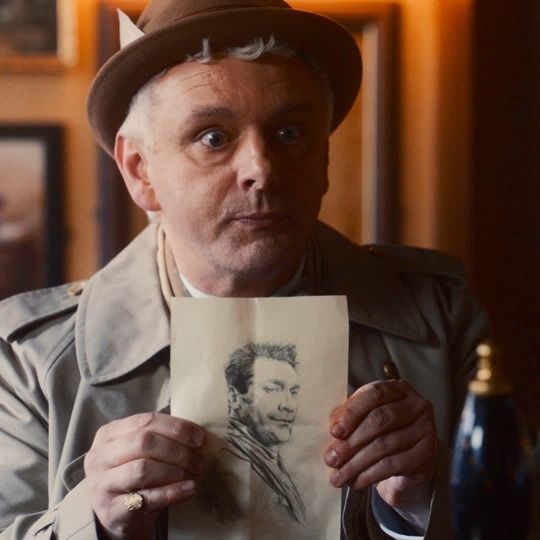
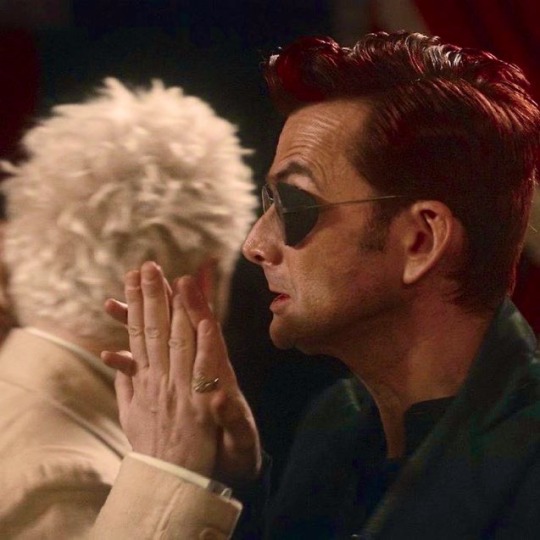
That is, with the exception of Penhallow, her 1942 mystery novel explaining how a desperate act intended to bring about good consequences brings only more tragedy in its wake instead (and spoiler alert: murdering a thoroughly unlikeable elderly character doesn’t secure the expected peace or happiness).

J. B. Bobo’s Modern Coin Magic, while not that modern anymore with a publishing date of 1952, provides a complete treatise on sleight of hand coin conjuring, making an excellent companion for those who want to impress and entertain with some classic magic tricks. Including working professional magicians like Fell the Marvelous.
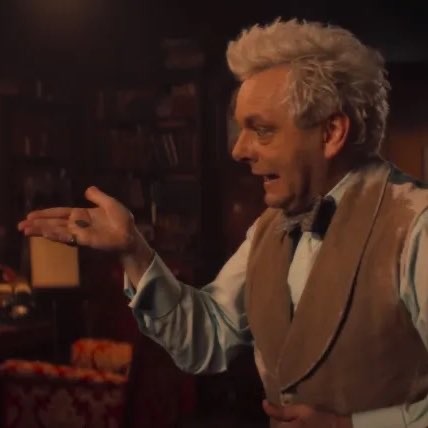
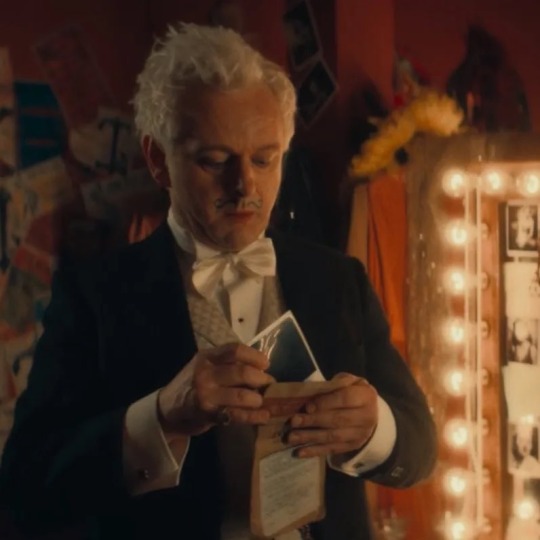
But what about the Winnie the Pooh books? Sure, they offer the ultimate childhood escapist fantasy with a happy-go-lucky story and cheerful characters living in the Garden of— um, Hundred Acre Wood. The original Ashdown Forest is, by the way, located under the South Downs National Park authority.
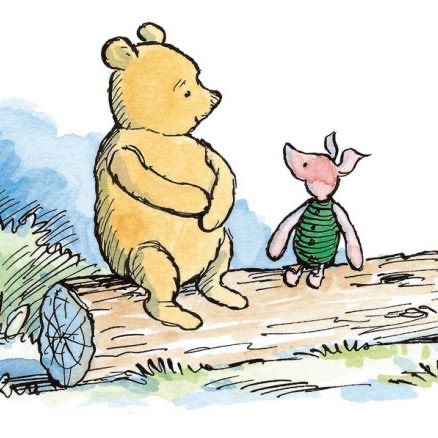
A. A. Milne participated in and survived two world wars. Writing was a creative way of talking about his struggles and those of many other individuals affected by trauma, mental health issues and illnesses that are left untreated and undiagnosed. Each of the animals famously symbolizes different disorder.


And according to the major theme of the power of friendship saving the day (with an occasional help of Christopher Robin, who plays his ineffable game as long as his adults let him), even a scary guest turns out not so scary after all, becoming a new friend himself.
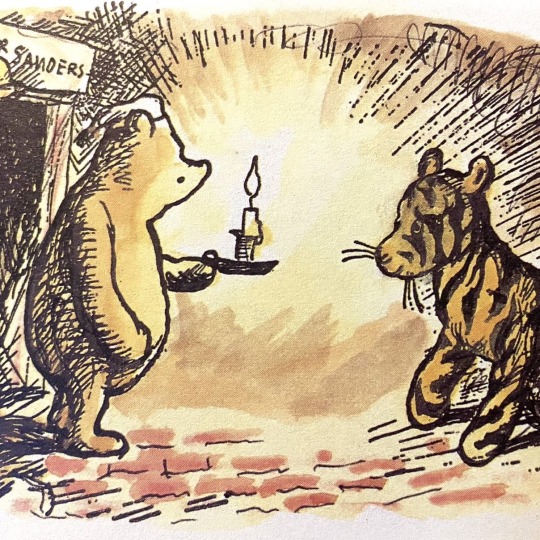

#good omens#good omens meta#go2 spoilers#go2 meta#go2#good omens 2#aziraphale#fell the marvelous#south downs cottage#winnie the pooh#yuri is doing her thing
212 notes
·
View notes
Note
We need more what-book-would-the-cast-read headcanons, stat. Nobody's invented television yet (or perhaps cinemas) so what form of entertainment is both historically accurate and available in-game? Books!
I'll start:
Jesse, as a turbo nerd, loves the heck out of whatever the in-univers equivalent of superhero comics is (knights, not laser beams), owns special editions of the Lord of the Rings, has fun with those campy space-opera sci-fi books and and occasionally picks up the occasional nonfiction book about obscure interesting topics, which her friends will then hear about nonstop for the next week or so. She has a special fondness for Charlotte's Web, which she used to read to Reuben when he was younger. She sometimes leafs through the latest Cosmo in the convenience store magazine rack as a guilty pleasure.
Olivia also enjoys a decent sci-fi novel (albeit less space opera and more hard science), likes murder mysteries, secretly indulges in a few chastely romantic Victorian classics, eats Linux user manuals for breakfast and gets the latest edition of Popular Redstonics mailed to the treehouse every fortnight. She has occasional arguments with Jesse over the organizational system of their shared library, which tends to lapse into chaos when the latter is in charge.
Axel shares Jesse's enthusiasm for superhero comics and is first in the queue to get the newest volumes for the both of them. His memoir and travel literature collection is substantial—his stamp collection sits proudly between—and he secretly reads poetry and has attempted to make his own tentatively awkward verses. He also subscribes to Backyard Demolitionists Weekly in the mail.
Petra doesn't mess with 'stuffy old books written by dead people' (classics), but still rereads Treasure Island and other gallivanting picaresque type novels in her spare time. She digs the Count of Monte Cristo but completely missed the message about the costly and potentially futile price of revenge. Anything history related that doesn't have multiple wars in it is like pulling teeth. She used to secretly look at the Playboys hidden in a chest in her father's room when no one was around.
Lukas is invested in a wide range of literary fiction, from historical novels to the weirder avant garde novellas, and has a soft spot for little felines in his books. He's not the most well versed in philosophy but had a brutal period in his late teens when he discovered Schopenhauer. East of Eden has a special place in his heart for certain familial similarities, but he's never thought to voice that out loud. On the rare occasion that he's really irate he'll burn through a standard slasher horror novel and then discreetly return it to the library. In the future, a whimsical passage in his authorized biography will note that he's one of the few authors who isn't on outrageous (or any) quantities of drugs when writing.
Ivor reads romance novels, the sappiest, bodice ripping Mills and Boons stuff. He hides it under extreme lock and key and would probably vaporize whoever found out about it. It's another thing he has in common with his mother, which he is apparently unaware of. He also composed atrocious poetry in his sulky teenage years, which was burnt long ago. Those Gary-Stu edgy grim fantasy protagonists appealed immensely to him, and was a phase that lasted until he got the chewing out of his life from Ellegaard when attempting the same mannerisms in the lab.
Aiden doesn't read and is proud of it because he's an arrogant numbskull.
~~~
#mcsm#mcsm confessions#minecraft story mode#mcsm headcanons#mcsm jesse#mcsm petra#mcsm lukas#mcsm olivia#mcsm axel#mcsm ivor#mcsm aiden
26 notes
·
View notes
Text
2025 Release TBR
🏳️🌈 - queer MC 🇨🇦 - Canadian author ⭐️ - BIPOC MC 📘 - have an ARC bold - new added
The Songbird - Stacy Lynn Miller (historical fiction) - January 7
Adrift in Currents Clean and Clear - Seanan McGuire (fantasy) - January 7
Rebellious Grace - Jeri Westerson (historical mystery) 🏳️🌈 - January 7
The Betrayal of Thomas True - A.J. West (historical mystery) 🏳️🌈 - January 14
An African History of Africa - Zeinab Badawi (history) ⭐️ - January 14
Haunting and Homicide - Ava Burke (cozy mystery/urban fantasy) - January 21
Emily Wilde's Compendium of Lost Tales - Heather Fawcett (fantasy) 🇨🇦 - February 11
Upon a Starlit Tide - Kell Woods (fantasy) - February 18
Wooing the Witch Queen - Stephanie Burgis (romantasy) - February 18
Greenteeth - Molly O’Neill (fantasy) 🏳️🌈 - February 25
The Amber Owl - Juliet Marillier (fantasy) - February 25
Once Was Willem - M.R. Carey (historical fantasy) - March 4
The Boxcar Librarian - Brianna Labuskes (historical fiction) - March 4
May Contain Murder - Orlando Murrin (cozy mystery) 🏳️🌈 - March 11
The Tomb of Dragons - Katherine Addison (fantasy/mystery) 🏳️🌈 - March 11
Installment Immortality - Seanan McGuire (urban fantasy) - March 11
The Duke at Hazard - KJ Charles (historical romance) 🏳️🌈 - March 11
Malinalli - Veronica Chapa (historical fiction) ⭐️ 📘- March 11
Alterations - Kate Maruyama (historical fiction) ⭐️ - March 11
What Wakes the Bells - Elle Tesch (YA fantasy) 🇨🇦 - March 11
A Gentleman's Gentleman - TJ Alexander (historical romance) 🏳️🌈 - March 11
Love and Other Paradoxes - Catriona Silvey (time travel/romance) 📘- March 11 NDF
The Hymn to Dionysus - Natasha Pulley (fantasy/retelling) 🏳️🌈 - March 18
The Buffalo Hunter Hunter - Stephan Graham Jones (horror)⭐️ - March 18
The Mesopotamian Riddle - Joshua Hammer (history) - March 18
Aunt Tigress - Emily Yu-Xuan Qin (contemporary fantasy) 🇨🇦🏳️🌈 - March 25
Murder by Memory - Olivia Waite (cozy science fiction/mystery) 🏳️🌈 - March 18
The Chow Maniac - Vivien Chien (cozy mystery) ⭐️ - April 1
Direct Descendant - Tanya Huff (cozy fantasy/horror) 🇨🇦 🏳️🌈 - April 1
Vera Wong’s Guide to Snooping (on a Dead Man) - Jesse Q. Sutanto (cozy mystery) ⭐️ - April 1
The Ashfire King - Chelsea Abdullah (fantasy) ⭐️ - April 15
Saga, Vol. 12 - Brian K. Vaughan and Fiona Staples (graphic science fiction) 🇨🇦 - April 15
Great Big Beautiful Life - Emily Henry (contemporary romance) - April 22
The Lilac People - Milo Todd (historical fiction) 🏳️🌈 - April 29
Overgrowth - Mira Grant (science fiction/horror) - May 6
Austen at Sea - Natalie Jenner (historical fiction) 🇨🇦 - May 6
The Country Under Heaven - Frederic S. Durbin (weird western) - May 13
Strange New World - Vivian Shaw (urban fantasy) - May 20
Baking Across America - B. Dylan Hollis (cookbook) 🏳️🌈 - May 20
Everybody Wants to Rule the World (Except Me) - Django Wexler (fantasy) 🏳️🌈 - May 27
The Grimoire Grammar School Parent Teacher Association - Caitlin Rozakis (comic fantasy) - May 27
Bury Our Bones in the Midnight Soil - V.E. Schwab (horror/fantasy) 🏳️🌈 - June 10
Amelia if Only - Becky Albertalli (YA contemporary romance) 🏳️🌈 - June 10
The Mercy Makers - Tessa Gratton (fantasy) - June 17
A Far Better Thing - H.G. Parry (historical fantasy) - June 17
The Rushworth Family Plot - Claudia Gray (historical mystery) - June 17
Stone and Sky - Ben Aaronovitch (urban fantasy) ⭐️ - July 8
The Frozen People - Elly Griffiths (science fiction/mystery) - July 8
Algospeak - Adam Aleksic (linguistics) - July 15
Mayhem at a Halloween Wedding - Emmeline Duncan (cozy mystery) - July 29
Automatic Noodle - Annalee Newitz (cozy science fiction) - August 5
The Magician of Tiger Castle - Louis Sachar (fantasy) - August 5
Hemlock and Silver - T. Kingfisher (fantasy) - August 19
Katabasis - R.F. Kuang (dark academia/fantasy) - August 26
Boudicca’s Daughter - Elodie Harper (historical fiction) - August 28
Hot Wax - M.L. Rio (fiction) - September 9
The Haunting of William Thorn - Ben Alderton (gothic horror) 🏳️🌈 - September 9
A Tangle in Time - Josiah Bancroft (steampunk/mystery) - September 9
Lady Like - Mackenzi Lee (historical romance) 🏳️🌈- September 9
The Summer War - Naomi Novik (fantasy) - September 16
Audition for the Fox - Martin Cahill (fantasy) - September 16
Replaceable You - Mary Roach (science) - September 16
Ladies in Hating - Alexandra Vasti (historical romance) 🏳️🌈 - September 25
The Gnomes of Lychford - Paul Cornell (contemporary fantasy) - September 25
What Stalks the Deep - T. Kingfisher (horror) 🏳️🌈 - September 30
Silver and Lead - Seanan McGuire (urban fantasy) - September 30
Cinder House - Freya Marske (horror/retelling) 🏳️🌈 - October 7
The Bakery Dragon and the Fairy Cake - Devin Elle Kurtz (cozy fantasy/picture book) - October 7
He’s So Possessed With Me - Corey Liu (YA horror) 🏳️🌈 🇨🇦 - October 14
The Isle in the Silver Sea - Tasha Suri (romantasy) 🏳️🌈 - October 21
The Everlasting - Alix E. Harrow (fantasy) - October 25
The Keeper of Magical Things - Julie Leong (cozy fantasy) ⭐️ - November 4
Brigands and Breadknives - Travis Baldree (cozy fantasy) - November 11
Audrey Lane Stirs the Pot - Alexis Hall (contemporary romance) 🏳️🌈 - December 9
24 notes
·
View notes
Text
navigation
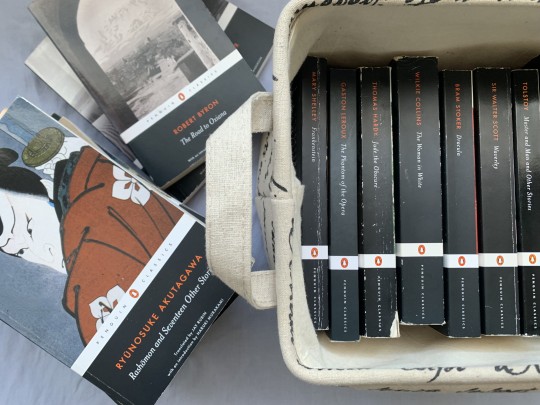
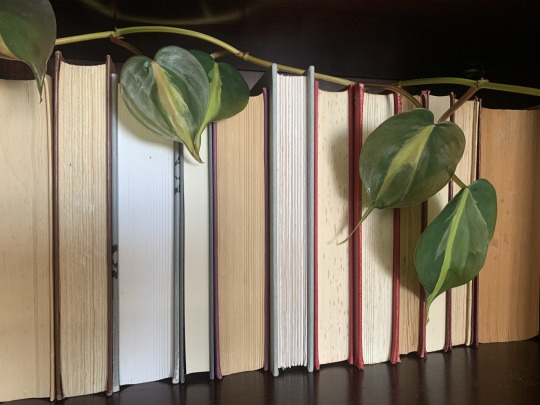
hello, my name is Nejj (22 – f – muslimah – bookblr – dark academia – sfw account)
born and raised in ireland but ethnically I am half ½ moroccan ½ ukrainian.
StoryGraph – Pinterest – Instagram
I have the same pfp and username (nejjcollectsbooks) across all of my accounts.
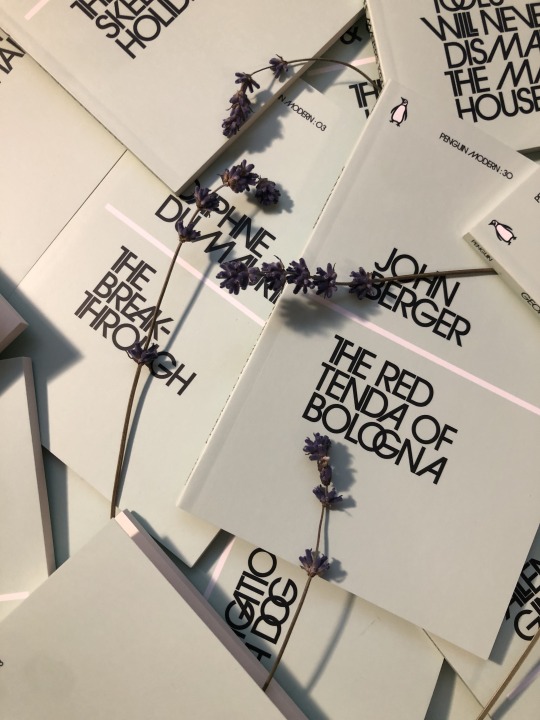
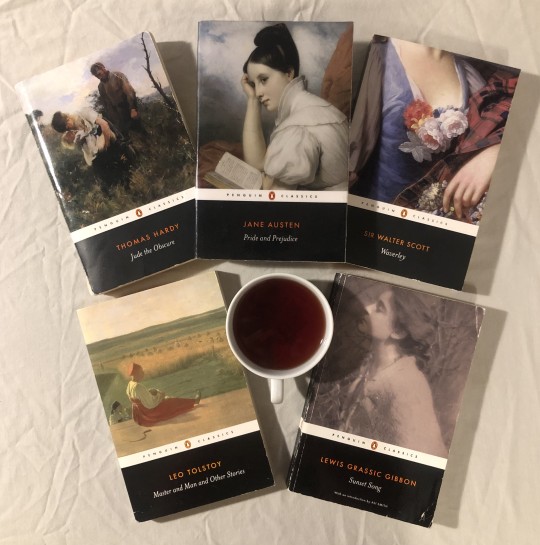
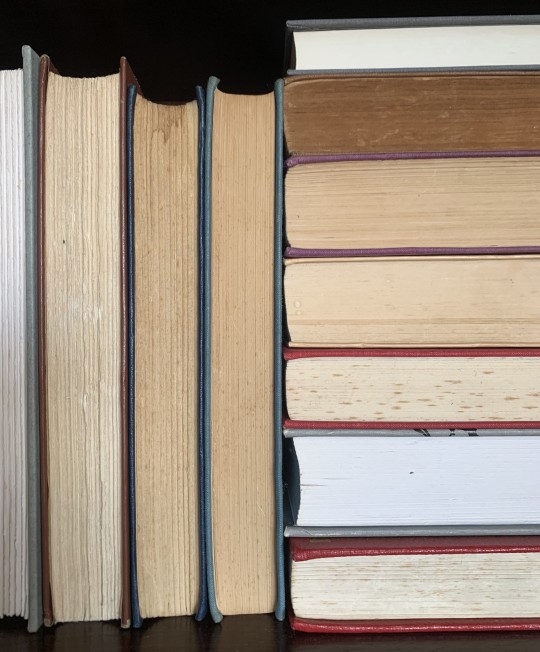
NEJJ BOOKBLR is the tag for all of my original content.
Since I have a home library I take aesthetic pictures of books. My home library mainly consists of thrifted books across all kinds of genres.
Here are the main genres I collect:
history (middle eastern, north african, irish, african, asian) anthropology religion literary criticism psychology biographies & memoirs (of authors, world travellers, royalty) myths, legends & folklore classic literature modern classics fantasy science fiction historical fiction poetry magical realism murder mystery & crime fiction books about books
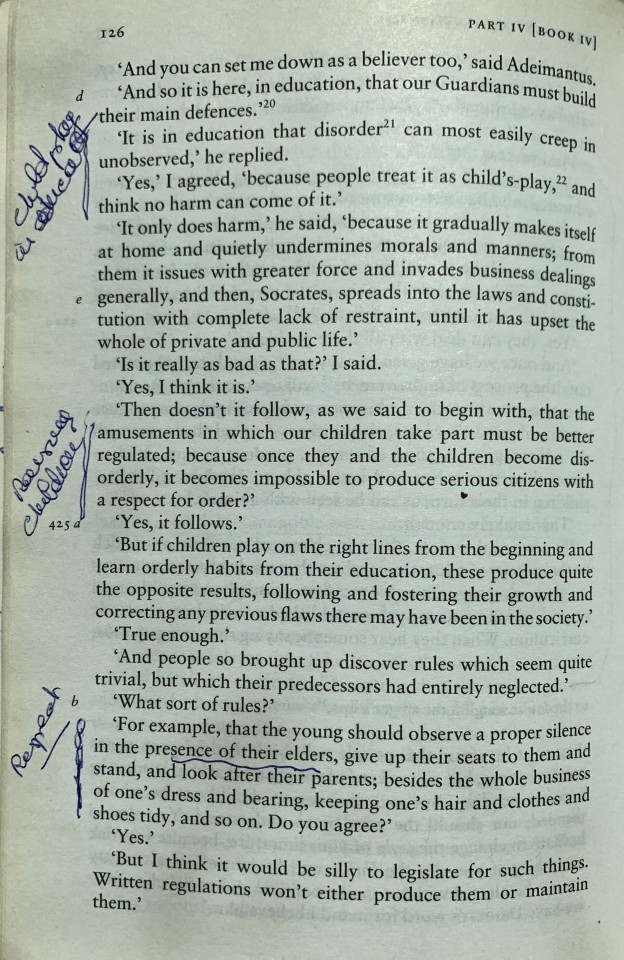
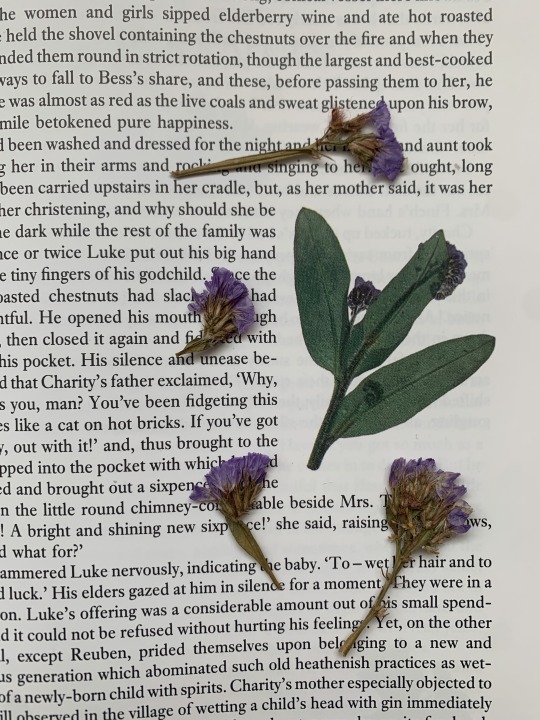
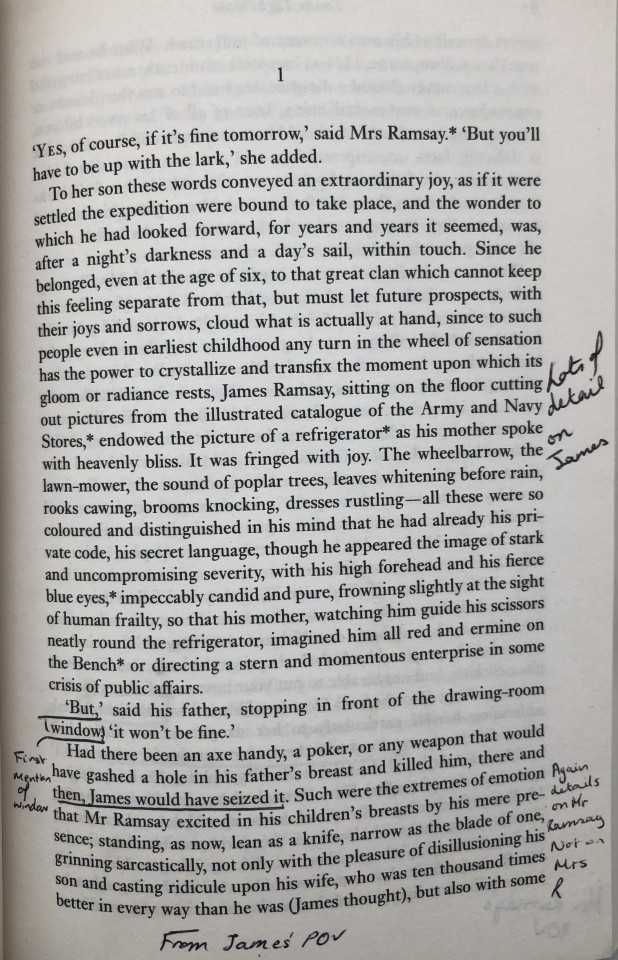
#nejj bookblr#books#bookworm#bookish#booklr#book annotations#book blog#reading#dark academia#classic academia#light academia#literature#lit#academia#fiction#photography#book photography#aesthetic#softcore#cozycore
54 notes
·
View notes
Text
about to sound like a turbo asshole but that’s okay. tens of thousands of aspiring writers on tumblr who freely admit they only read fanfic, fanfic adapted into original books, and webcomics/cartoons.
there is nothing wrong with engaging in fandom and reading tons of fanfic. I don’t actually have a moral or artistic issue with writers turning their fanfics into original works and trying to publish it. tale as old as time.
but the #1 thing that will improve your writing, more than any list of tumblr tips or youtube writing seminars or discord discussions, is reading a wide range of books.
read ‘popcorn lit’. read coming of age tales. read kids fantasy. read adult fantasy. read murder mysteries. read erotica. read nonfiction memoirs. read books of poetry. read historical fiction. read books by dead people and young people and translated works. read realistic dramas. read sci fi. read horror. read short story anthologies.
but you MUST read more than just fanfiction if you want to improve. and if you are an adult you SHOULD try to branch out and read beyond YA literature. even if’s uncomfortable and hard at first. hell, read books to disagree with them! read authors you object to! articulate why you disagree! critique! that’s part of maturing as a reader and writer.
108 notes
·
View notes
Text

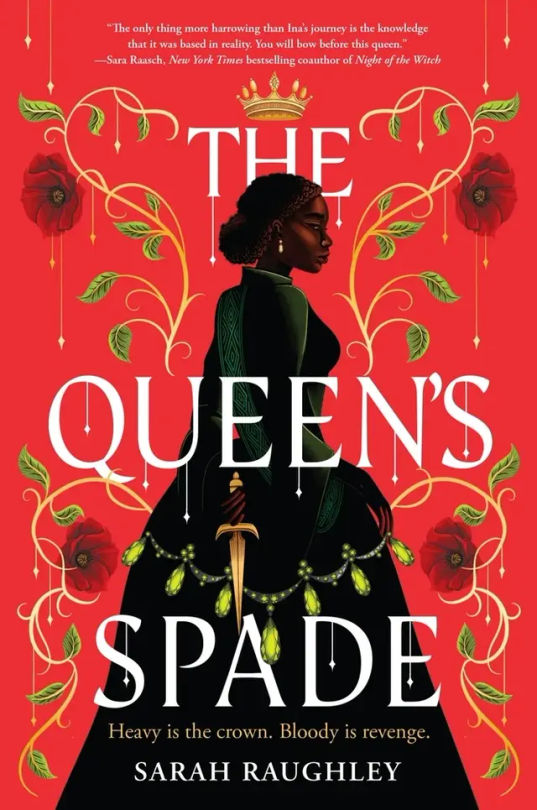

Women Authors We Love
It's Women's History Month and we thought it would be fun to highlight some authors that are killing it in their genre. Some of these books are already available and some we are absolutely looking forward to.
Fantasy/Sci-Fi
Oathbound (Legendborn Cycle, #3) by Deonn Simon & Schuster Books for Young Readers
Severed from the Legendborn. Oathbound to a monster.
Bree Matthews is alone. She exiled herself from the Legendborn Order, cut her ancestral connections, and turned away from the friends who can’t understand the impossible cost of her powers. This is the only way to keep herself—and those she loves—safe.
But Bree’s decision has come with a terrible price: an unbreakable bargain with the Shadow King himself, a shapeshifter who can move between humanity, the demon underworld, and the Legendborn secret society. In exchange for training to wield her unprecedented abilities, Bree has put her future in the Shadow King’s hands—and unwittingly bound herself to do his bidding as his new protégé.
Meanwhile, the other Scions must face war with their Round Table fractured, leaderless, and missing its Kingsmage, as Selwyn has also disappeared. When Nick is detained by the Order’s Merlins, he invokes an ancient law that requires the High Council of Regents to convene at the Northern Keep and grant him an audience. No one knows what he will demand of them…or what secrets he has kept hidden from the Table.
As a string of mysterious kidnappings escalates and Merlins are found dead, it becomes clear that no matter how hard Bree runs from who she is, the past will always find her.
Available Now at Bookshop
Horror
They Bloom at Night by Trang Thanh Tran Bloomsbury YA
A red algae bloom has taken over Mercy, Louisiana. Ever since a devastating hurricane, mutated wildlife lurks in the water that rises by the day. But Mercy has always been a place where monsters walk in plain sight. Especially at its heart: The Cove, where Noon’s life was upended long before the storm at a party her older boyfriend insisted on.
Now, Noon is stuck navigating the submerged town with her mom, who believes their dead family has reincarnated as sea creatures. Alone with the pain of what happened that night at the cove, Noon buries the truth: she is not the right shape.
When Mercy’s predatory leader demands Noon and her mom capture the creature drowning residents, she reluctantly finds an ally in his deadly hunter of a daughter and friends old and new. As the next storm approaches, Noon must confront the past and decide if it’s time to answer the monster itching at her skin.
Available Now at Bookshop
Romance
Audre & Bash Are Just Friends by Tia Williams
MEET AUDRE. Junior class president. Debate team captain. Unofficial student therapist. Desperately in need of a good time.
MEET BASH. Mysterious new senior. Everybody's crush. Tall, floppy, great taste in jewelry. King of having a good time.
It's the last day of school at Cheshire Prep, Brooklyn's elite academy--and Audre Mercy-Moore's life is a mess. Her dad cancelled her annual summer visit to his Malibu beach house. Now? She's stuck in a claustrophobic apartment with her mom, stepdad, and one-year-old sister (aka the Goblin Baby).
Under these conditions, she'll never finish writing her self-help book--ie, the key to winning over Stanford's admissions board.
Cut to Bash Henry! Audre hires him to be her "fun consultant." His job? To help her complete the Experience Challenge--her list of five wild dares designed to give her juicy book material. She'll get inspo; he'll get paid. Everybody wins.
He isn't boyfriend material. And she's not looking for one. Can they stay professional despite their obvious connection?
Available in May. Preorder at Bookshop
Historical Fiction
The Queen's Spade by Sarah Raughley
A young lady can take only so many injuries before humiliation and insult forge a vow of revenge. . . .
The year is 1862 and murderous desires are simmering in England. Nineteen-year-old Sarah Bonetta Forbes (Sally), once a princess of the Egbado Clan, desires one thing above all else: revenge against the British Crown and its system of colonial "humanitarianism," which stole her dignity and transformed her into royal property. From military men to political leaders, she’s vowed to ruin all who’ve had a hand in her afflictions. The top of her list? Her godmother, Britain’s mighty monarch, Queen Victoria herself.
Taking down the Crown means entering into a twisted game of court politics and manipulating the Queen’s inner circle—even if that means aligning with a dangerous yet alluring crime lord in London’s underworld and exploiting the affections of Queen Victoria’s own son, Prince Albert, as a means to an end. But when Queen Victoria begins to suspect Sally’s true intentions, she plays the only card in Victorian society that could possibly cage Sally once again: marriage. Because if there’s one thing Sally desires more than revenge, it’s her freedom. With time running out and her wedding day looming, Sally’s vengeful game of cat and mouse turns deadly as she’s faced with the striking revelation that the price for vengeance isn’t just paid in blood. It means sacrificing your heart.
Available Now at Bookshop
Literary Fiction
Dear Manny by Nic Stone
From the New York Times bestselling author of Dear Martin comes the thrilling final installment of the series, set in college. Jared (white, Justyce's roommate, woke) is running for Junior class president. With his antiracism platform, he's a shoo-in. But he's up against the new girl, Dylan. Will Jared have to choose between his head and his heart?
Jared Peter Christensen is running for president (of the Junior Class Council at his university, but still). His platform is solid—built on increased equity and inclusion in all sectors of campus life—and he’s got a good chance of beating the deeply conservative business major he’s running against.
But then a transfer student enters the race and calls Jared out for his big-talk/little-action way of moving. But what’s the right way to bring about change? As the campaign heats up, feelings are caught, and juicy secrets come to light, and Jared writes letters to his deceased friend Manny, hoping to make sense of his confusion. What’s a white boy to do when love and politics collide?
Available Now at Bookshop
14 notes
·
View notes